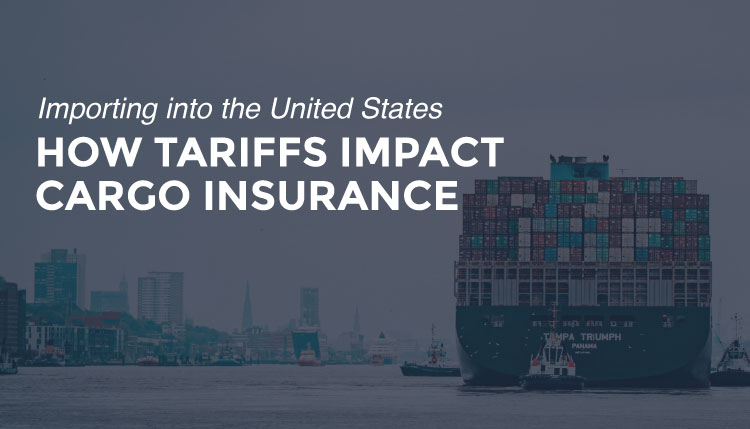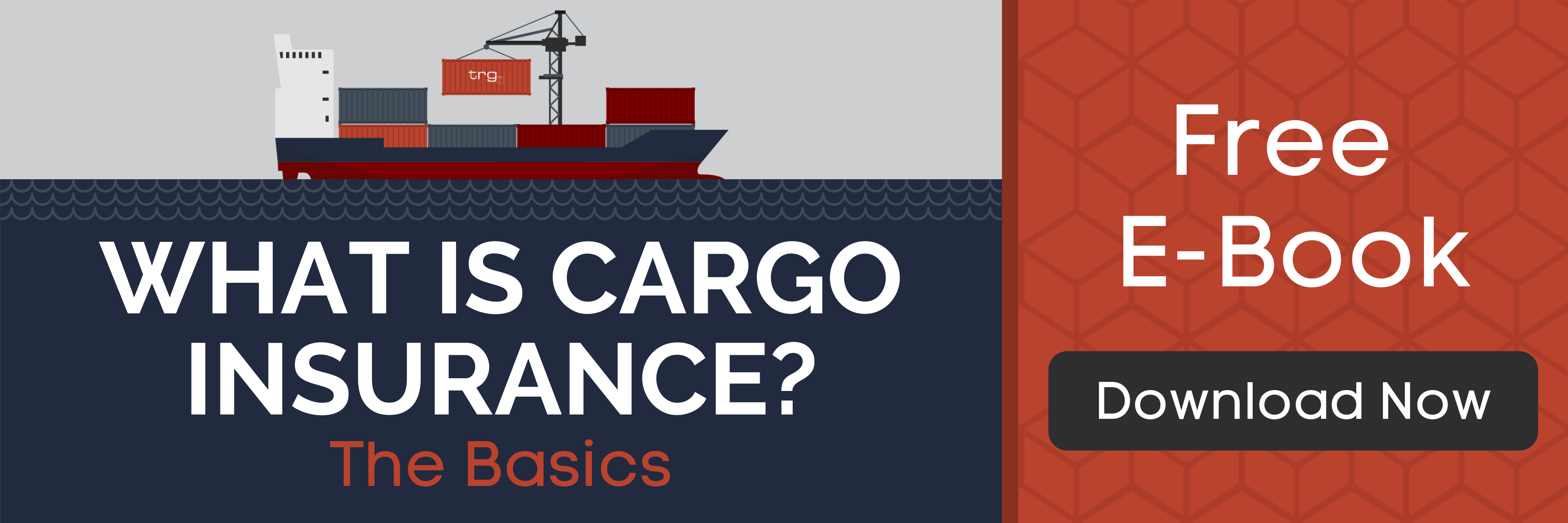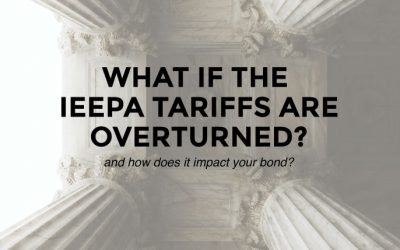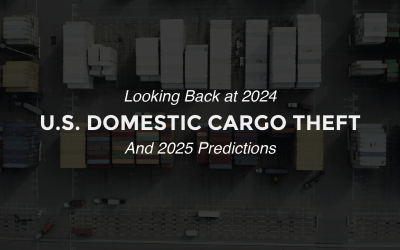When tariffs on goods imported into the United States increase, in addition to the impact to your U.S. Customs bond, you have to consider how those tariffs impact cargo insurance.
Cargo insurance is property insurance that protects goods as they flow through the supply chain and, unless it is specifically written for domestic coverage only, it includes coverage for international shipments. And when increased tariffs go into effect on goods imported into the United States, you have to consider how the increase amount you are paying in your duties, taxes, and fees can impact the cargo insurance policy you have on file or any future one you may put in place.
Consider Tariffs When Calculating Your Valuation
With any increased tariffs that are put into place, you have to think about the valuation of your goods for your Cargo Insurance. In terms of Cargo Insurance, valuation is an estimation of the cargo’s worth which informs the amount of coverage needed.
The traditional valuation is calculated at a rate of CIF + 10%. With the ‘C’ standing for ‘cost’ and including the amount the policy holder is paying for the goods. And the ‘F’ standing for ‘freight’ which is the amount the policy holder is paying the freight company to bring the goods over.
This agreed upon calculation is used by the insurance company to determine the amount the cargo insurance policy will pay out in the event of a claim. The 10% uplift is traditionally intended to cover incidentals such as:
- Incurred Duty
- Port Fees
- Broker Fees
- General Claim Expenses (drayage, transload fees, etc.)
However, with an increased tariff rate of 10% or 25%, the typical 10% uplift factored into your policy may not be enough to cover you if a loss occurs. And it is important to ask yourself “What happens if I suffer a full loss on my biggest shipment of the year?” and make sure you are covered for that large of an event.
Understanding Incurred Duty
The duty amount you paid on your shipment can only be included in a claim if the duty paid to U.S. Customs and Border Protection is considered incurred duty. Duty is considered incurred when the legal obligation to pay arises. Therefore, not only were the duties paid, but the goods have been entered into the country.
If your loss occurs prior to the duty being considered incurred, then the duty amount paid would not be included in the claim amount for your cargo insurance policy.
An Example of Tariffs Impact on Cargo Insurance
The chart below illustrates a simplified example of the calculation your cargo insurance provider would do to determine the maximum amount the policy would be able to pay in the event of a claim. This example is assuming that the total CIF value is $100,000, the insured has a deductible of $1,000, and that there are no enhancement clauses that apply or carrier compensation to consider.
| Total CIF Value | $100,000.00 |
| Uplift | +$10,000.00 |
| Total CIF + 10 Value | $110,000.00 |
| Deductible | ($1,000.00) |
| Policy Pays | $109,000.00 |
After the calculation above, we can see that the maximum amount this cargo insurance policy can pay out is $109,000. Now let’s see what happens if there is a claim and the insured has an incurred duty of $25,000 from an increased tariff rate they are subject to.
| Total Cost & Freight | $100,000.00 |
| Incurred Duty | $25,000.00 |
| Total Loss Amount | $125,000.00 |
| Total Amount Recoverable | $109,000.00 |
| Under-Insured | ($16,000) |
As you can see, there is $16,000 that the policy holder was not able to recover due to the fact that the incurred duty on the claim was higher than the 10% uplift done when the policy was put into place. This is a direct way that tariffs impact cargo insurance and can hurt the policy holder when a claim occurs.
Make Sure to Consider Per Loss Limit
The ‘Per Loss Limit’ is the most a cargo policy will pay out on any single claim. Therefore, if your company has a $500,000 per loss limit, that limit should be high enough to cover a claim if your largest shipment for the year was lost and a valuation of CIF + 10% is applied.
If a tariff rate is now being imposed on your imported goods and you are paying an additional 25% tariff, your previous per loss limit may no longer be enough to cover a loss on your biggest shipment. If your company is subject to a new tariff, it may be a good time to reevaluate your Cargo Insurance policy to ensure that you are fully covered in the event of a loss.







